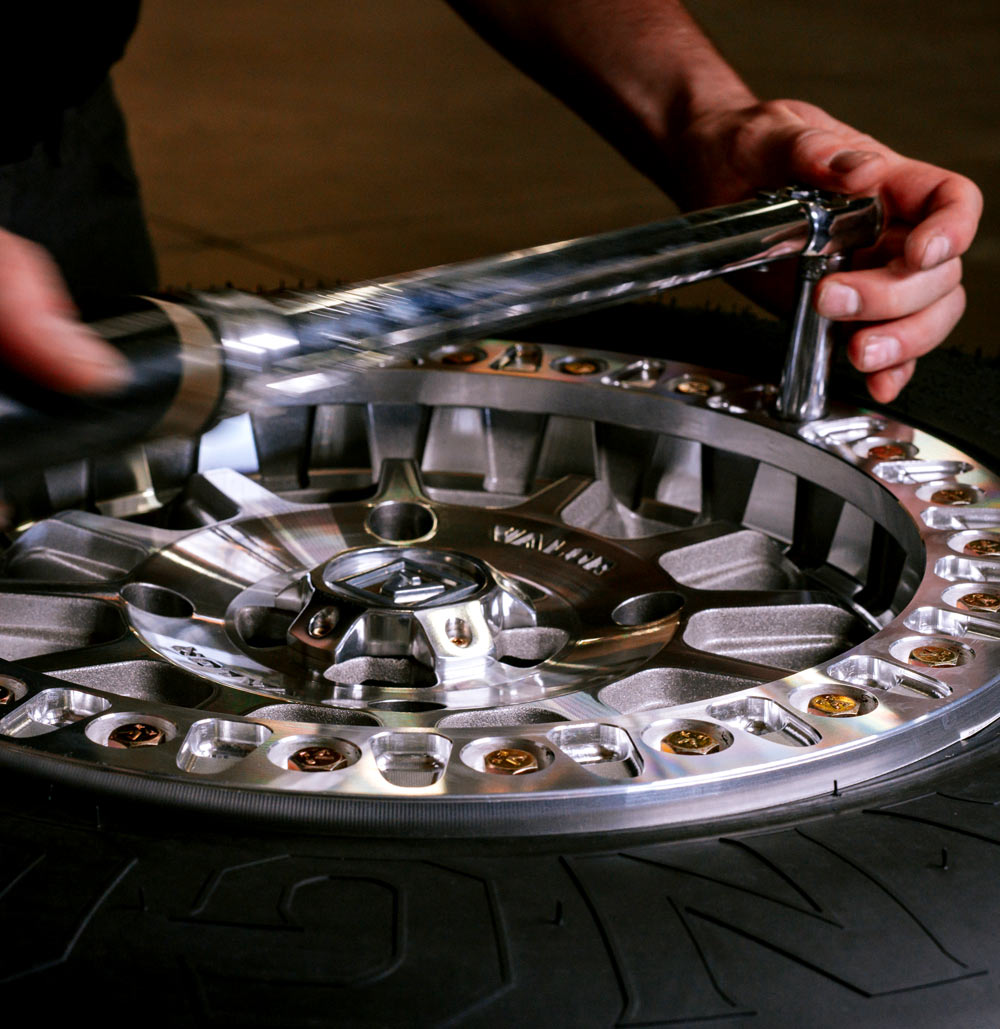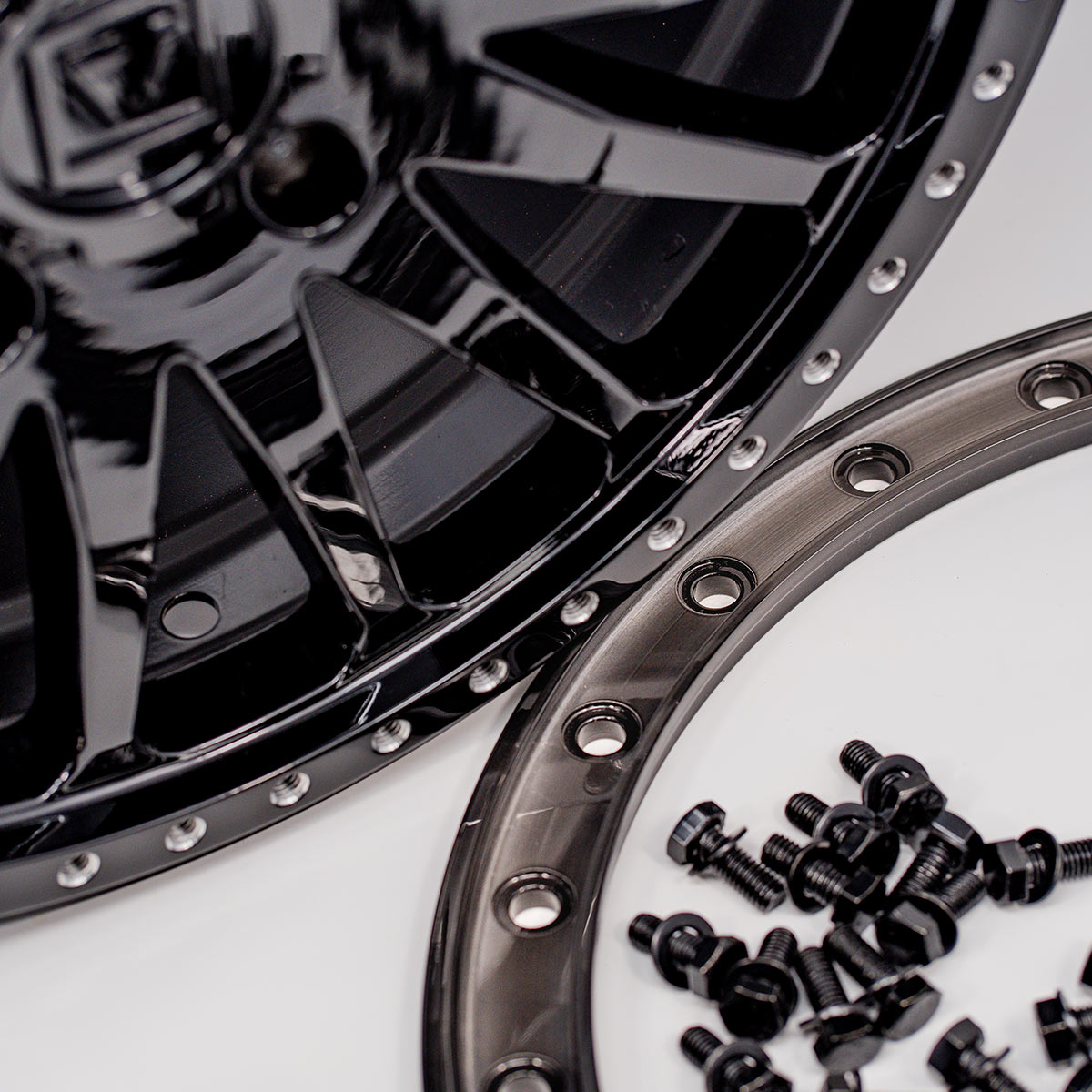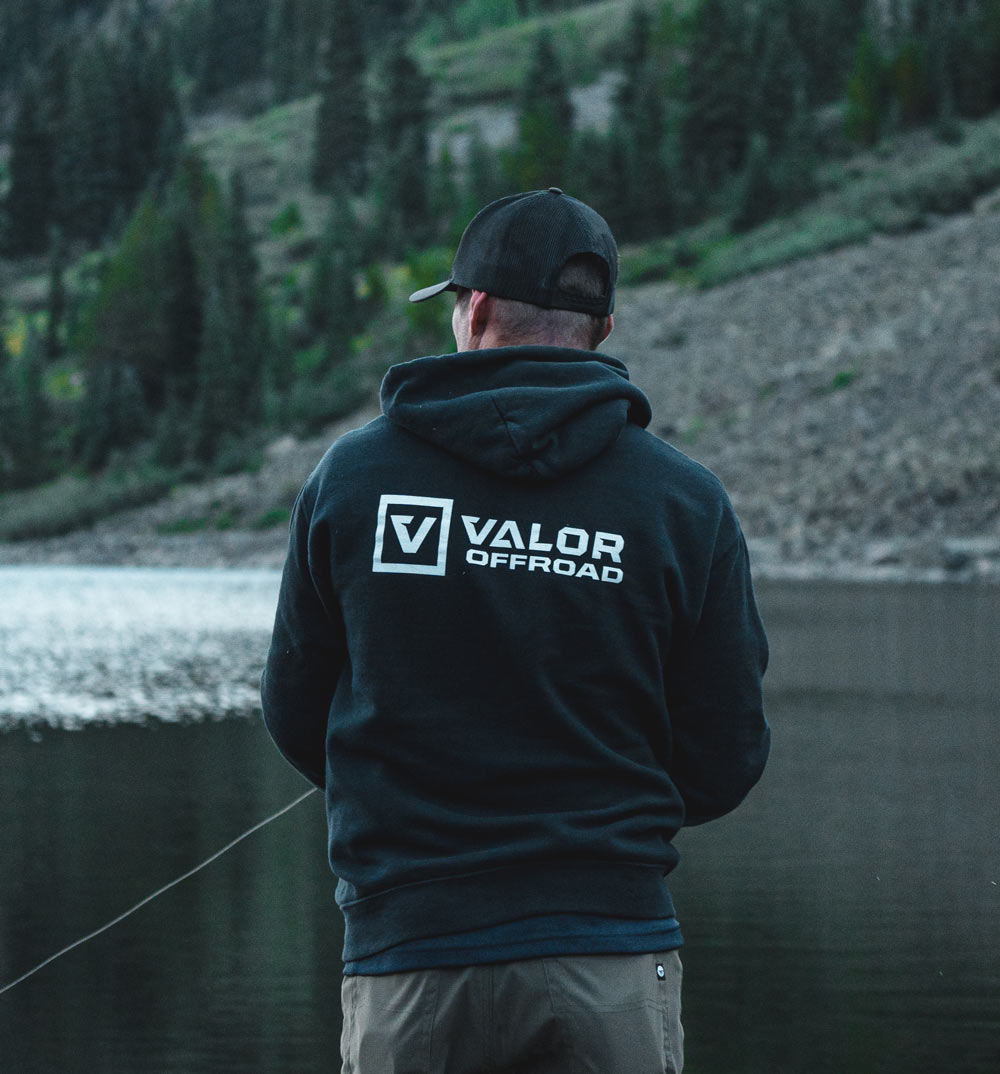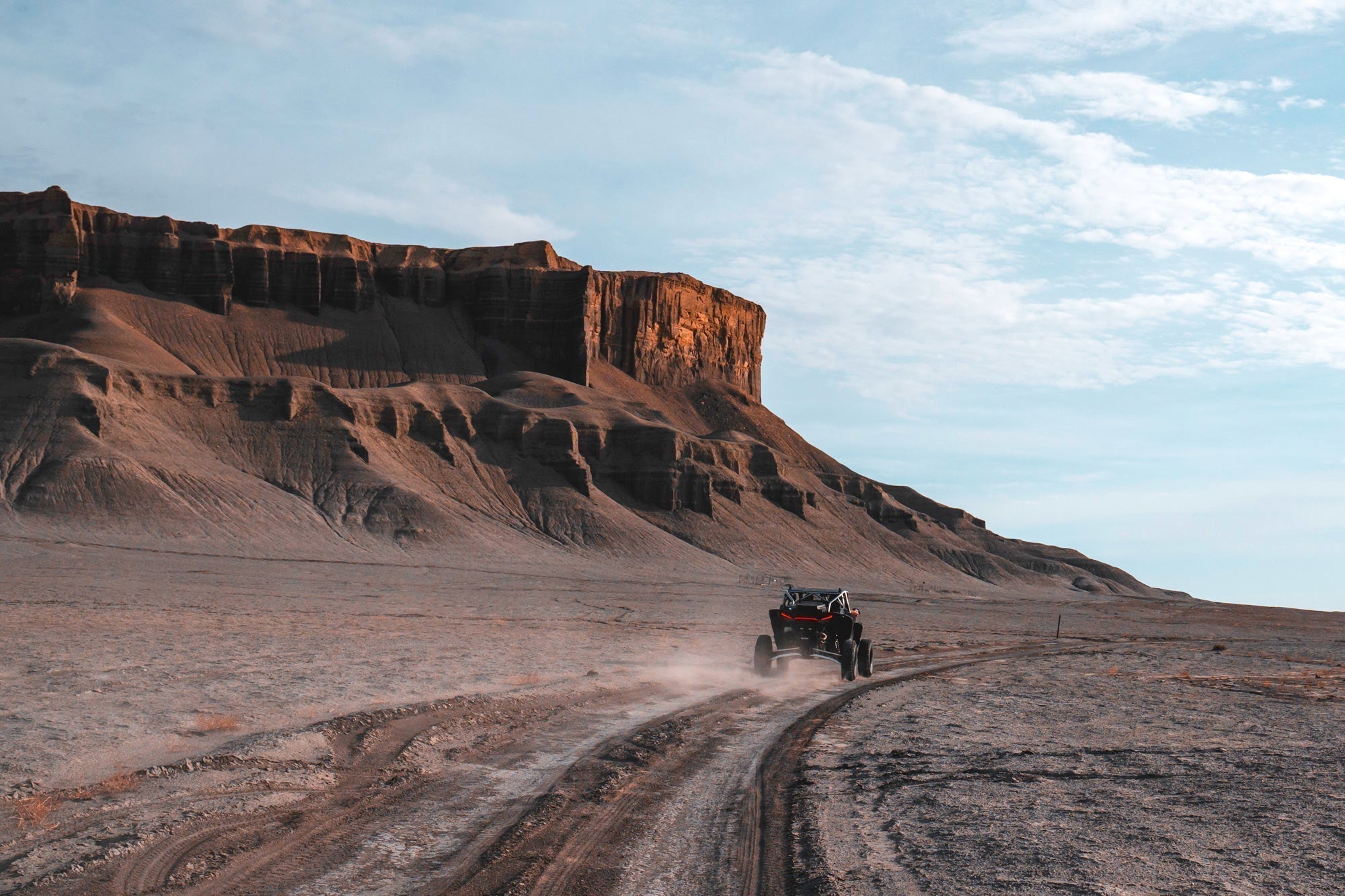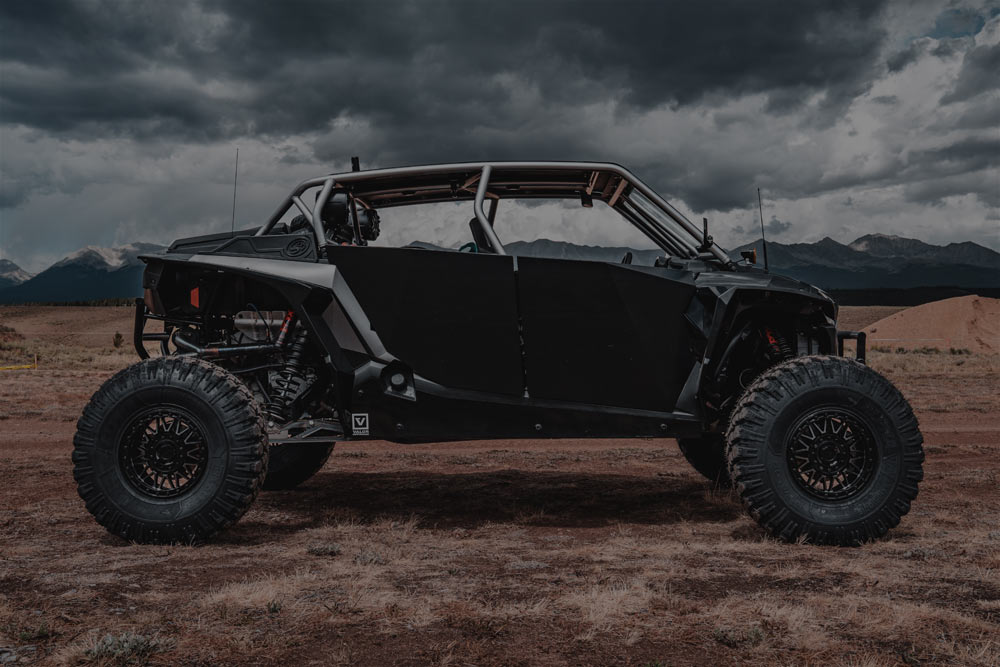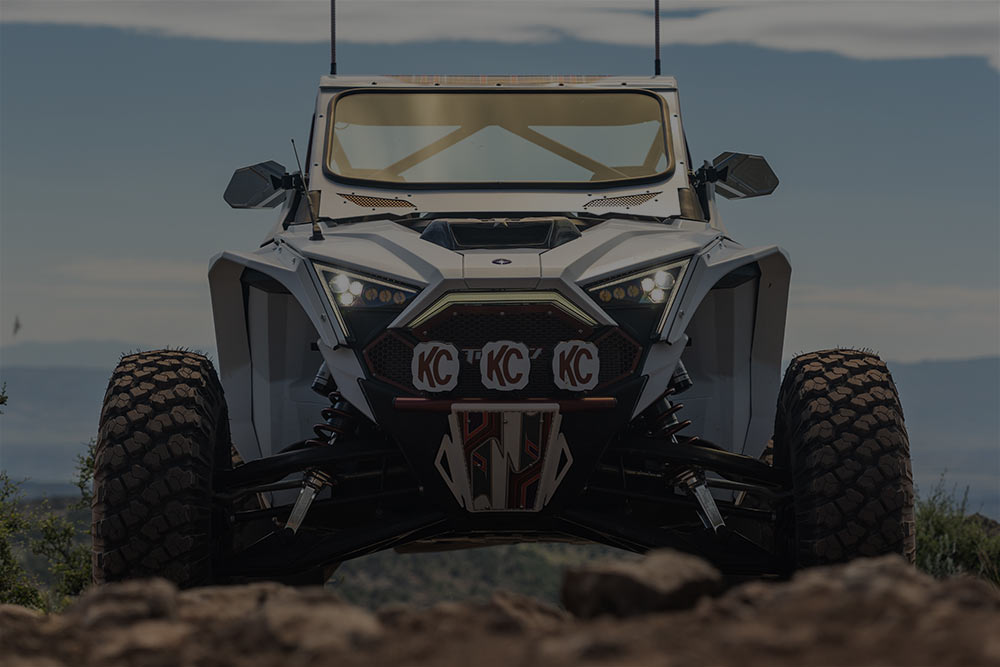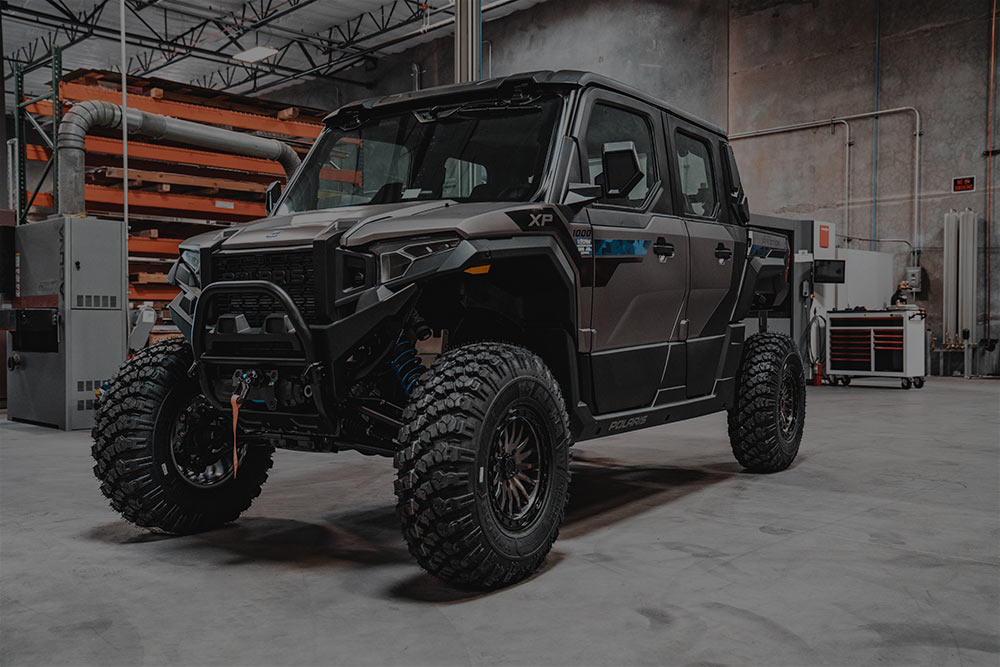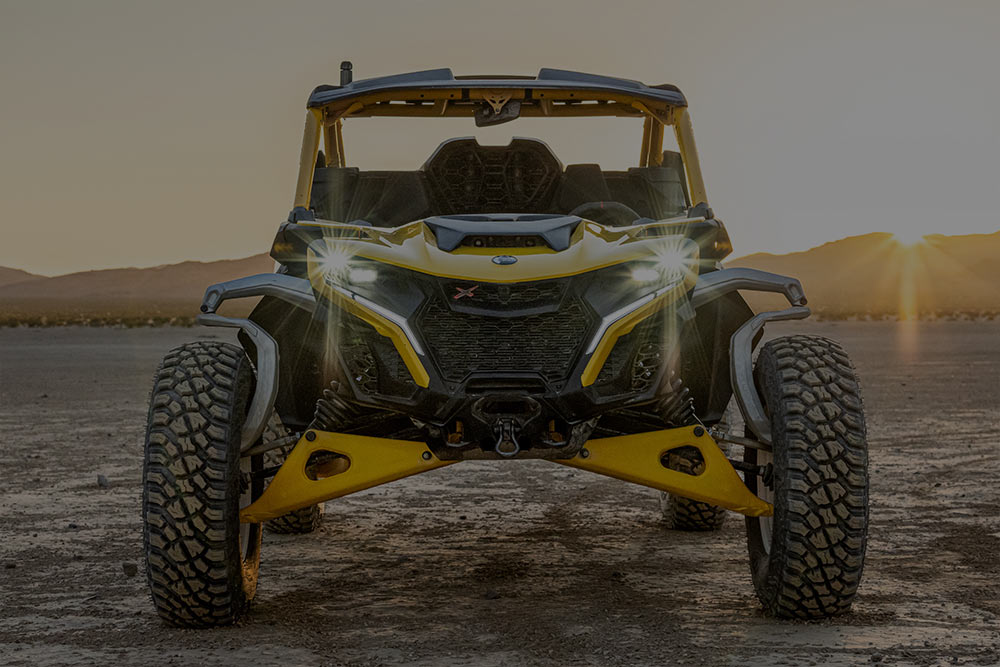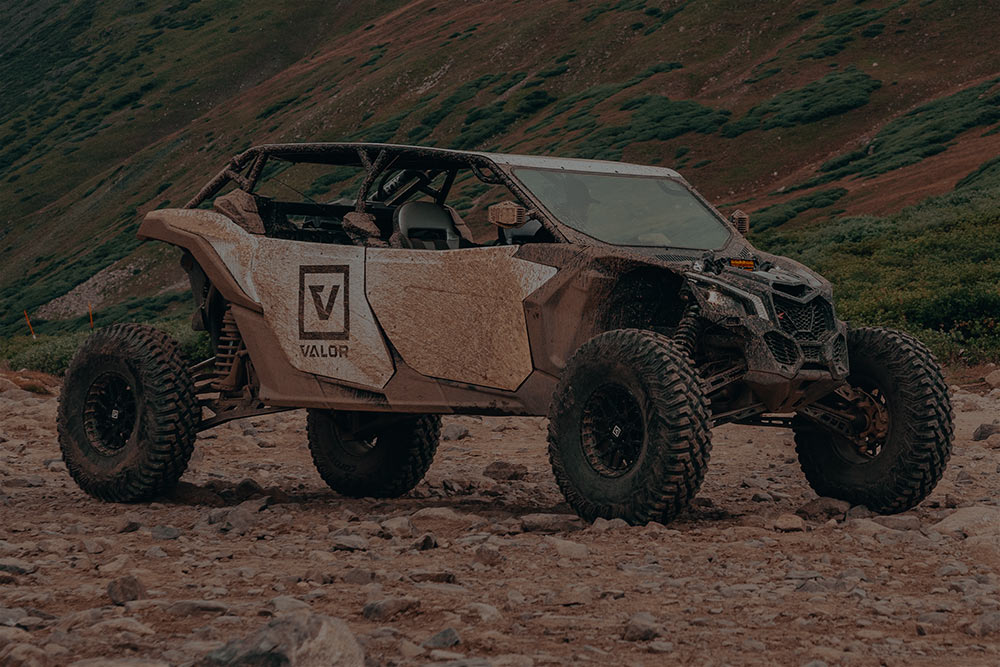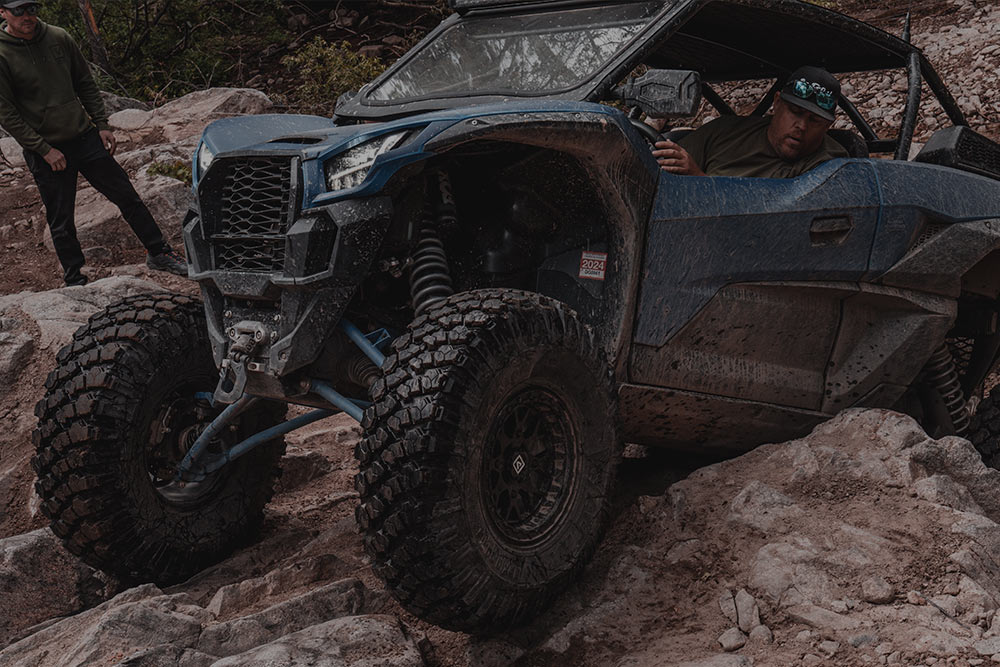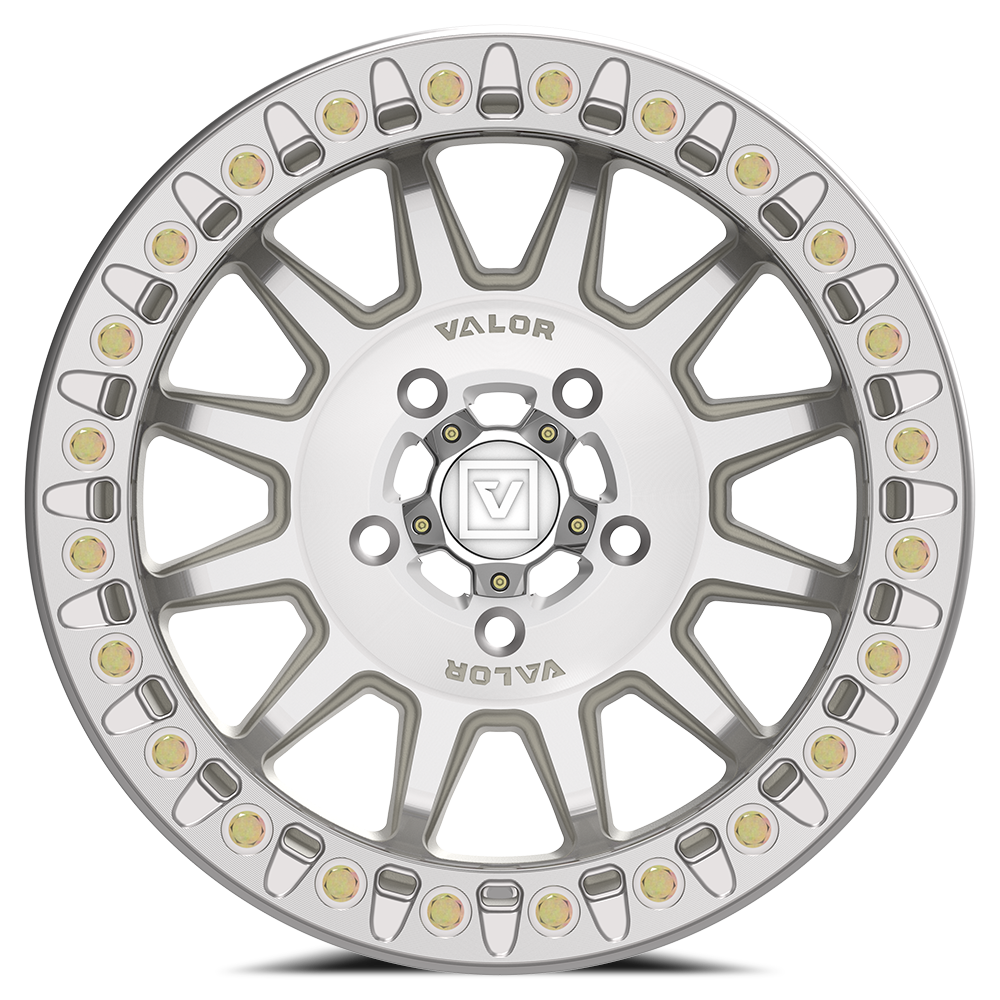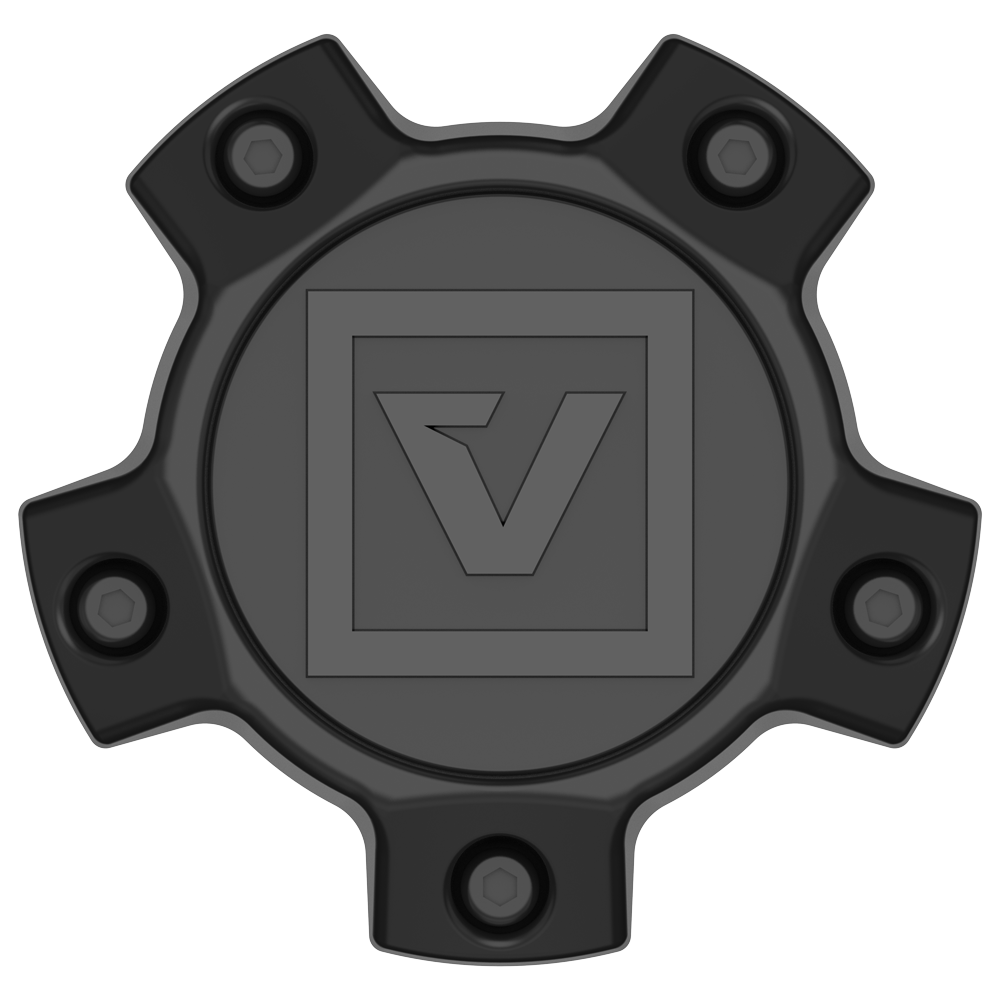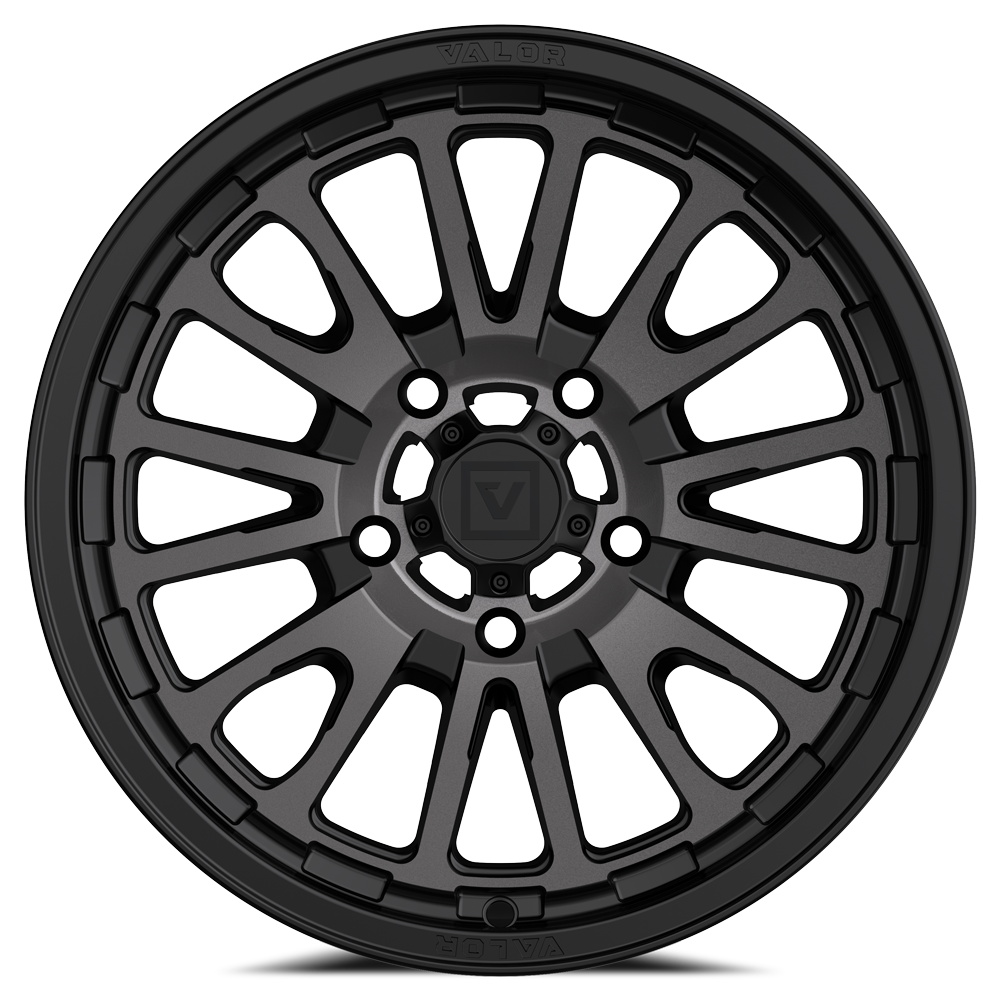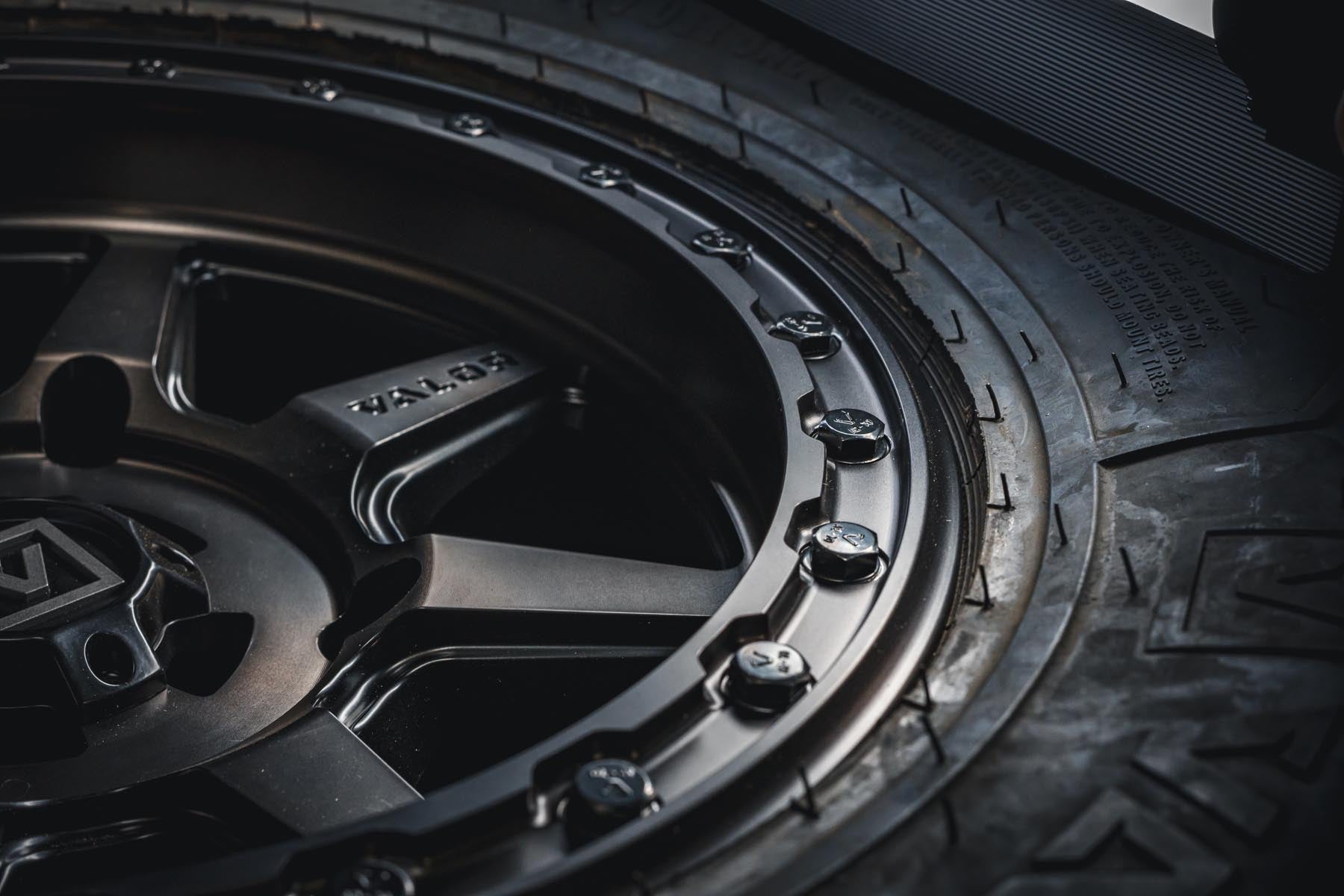Choosing the right wheel for your UTV involves considering several factors to ensure you get your preferred performance while maintaining safety. We get this is a tough call to make, here are some key points to help you make an informed decision:
-
Terrain
- Rocky Hills: Opt for durable wheels with excellent puncture resistance. Aluminum wheels are lightweight and strong, while steel wheels offer more toughness but add extra weight.
- Muddy Trails: Choose wheels with aggressive tread patterns for maximum grip. Deep lugs and wide tread designs help maintain traction in thick mud
- Sandy Dunes: Lightweight wheels with smooth tread designs are ideal. Paddle tires help with flotation, allowing the UTV to glide smoothly over dunes
-
Material
- Aluminum Wheels: Lightweight, better acceleration and handling, resistant to rust. Ideal for wet or muddy terrains but more susceptible to dents from heavy impacts.
- Steel Wheels: Extremely durable, can withstand tough terrains without easily denting or cracking. However, they add extra weight, which can reduce fuel efficiency and strain the suspension
-
Wheel Size
- Smaller Wheels (12-14 inches): Better maneuverability and precise handling in rocky and technical terrain.
- Larger Wheels: Generally offer better performance in smoother terrains but can affect handling in rough conditions
-
Offsets
- Positive Offset: Wheels are more tucked into the vehicle, improving width clearance and maintaining a closer center of gravity
- Negative Offset: Wheels stick out more, which can affect the vehicle's stability and handling
-
Bolt Patterns
- Ensure the wheels you choose match your UTV's bolt pattern to avoid fitment issues
-
Beadlock vs. Standard Wheels
- Beadlock Wheels: Ideal for aggressive off-road riding and lower PSI conditions. They prevent the tire from slipping off the rim
- Standard Wheels: Suitable for general use and less demanding terrains
-
Aesthetic Preferences
- Consider the style and finish of the wheels to match your UTV's look and your personal preferences
- By evaluating these factors, you can select the right wheels that enhance your UTV's performance and suit your specific off-road needs
-
Manufacturing Type
- Cast Wheel: Molten metal is poured into a mold and allowed to cool, forming the shape of the wheel. This process is much cheaper and faster than flow forming or forging resulting in the most cost effective option.
- Flow Forming: Flow forging involves a spinning process where rollers apply pressure to the barrel of a cast wheel to stretch and compress the metal, resulting in a stronger and lighter wheel compared to a standard cast wheel. The end result is a wheel with forged like qualities, for roughly half the cost.
- Forged: A solid block of high quality aluminum is heated and compressed, causing the grain structure to align and strengthen. This process results in a wheel that's lighter and stronger than a cast wheel but the most expensive of the options.

